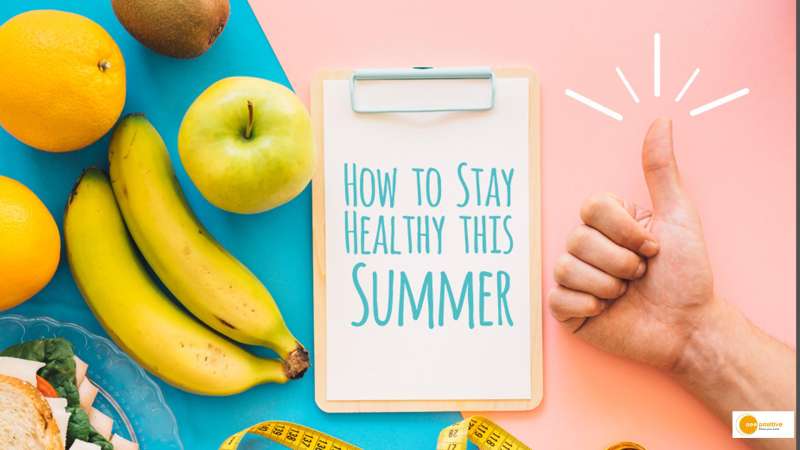Eminent Doctors’ Advice To Stay Fit During The Summer


Remaining fit during the summer is very important. Read on to know what the doctors are recommending to stay fit during this season.
Dr MS Purkait, Medical Superintendent, Techno India DAMA Hospital
With the day temperatures set to cross 33°C in Kolkata, the afternoon heat alert has already been issued for the elderly and children. The afternoons are getting high heat and dryness around since the intensity of sun rays is on the ascent. Symptoms of Heat Exposure can be noticed, which include light fever in the evening, dizziness, intense sweating, vomiting, fatigue, and fainting as seen amongst the office goers, children, and the young generation. There’s a loss of fluid, which results in body heating and triggers uneasiness.
In the last 2 weeks, more than a dozen patients have reported to OPD and have been treated due to heat-induced illness, mostly stomach infection due to a shortage of water in the body and consuming heavy and junk foods. 8 patients were constantly going through half fainting and breathing distress as they were unable to cope with the rising temperature. The situation can be adverse after the Dol and Holi celebrations as people tend to remain outside under the high heat, covered with synthetic colors and consuming filthy drinks and oily snacks. Post Holi, there is always a sharp rise in the cases of Colour Infection, Heat Allergy which is mostly seen amongst the Children whereas the issue of vomiting and diarrhea amongst the pregnant women is quite common which is very much risky.
For your overall well-being to combat the upcoming more challenging Summer Days
i. Try to remain and travel under comfortable temperature and shady zones.
ii. Importantly, increase the intake of ORS and Glucose water.
iii. Wear loose, light coloured clothes so that you remain free and your body can breathe. Use a cap or umbrella, and ensure you keep your head protected to avoid head strain.
iv. Carry cold water and drink regularly.
v. Since Holi is knocking, do avoid heavy alcohols and rely on lighter meals. Do consume fruit.
vi. Avoid commuting under high heat exposure and keep the elderly individuals, expecting mothers and children indoors.
vii. For the fitness enthusiast, Breathing Blockage is a major issue which can be life taking during high summer. Avoid strenuous exercise.
Dr Payel Kumar Roy, Chief Dietician & Critical Care Nutritionist, Techno India DAMA Hospital
One needs to consume light and easy foods as their daily diet. Such foods and drinks protect against dehydration and help in maintaining the optimal levels of energy.
Eat a lot of fresh fruits, salads, and lightly spiced foods, as the fruits and veggies are easy to digest. They bear high water content and help in hydration. Avoid fried and junk foods, as they take time to digest and require a lot of water. Spicy foods can also increase body heat. Summer can be incredibly exhausting and can leave one feeling drained out. Nothing is better than refreshing oneself with quick and tasty drinks. Fruit juices like Wonder watermelon, Lemon punch, Cool cucumber, and Masala Jeera. All these may vary in nutritional value, but most of them have a variety of health benefits. They contain various antioxidants, which help to reduce the risk of certain health issues, and vitamins that help the body to function well.
Apart from this, below mentioned are additional steps that can be undertaken as safety measures to combat the adverse impact of the heat wave.
a. Clean your face with cold water but not constantly. After washing, rub ice on the face.
b. Apply sunscreen lotion whenever you are about to get exposed to the scorching heat. This will help in avoiding dark shades on the skin and will also prevent developing allergies from sweat and heat.
c. Must include more Vitamin C and Calcium in the diet.
d. Include more water or fluid to keep the body well hydrated.
e. Light oils such as jojoba oil, lavender oil, Rosehip oil and grape seed oil can be used since these oils do not have a heavy consistency. They do not clog pores, instead, they hydrate your skin.
Dr Abhishek Kayal from Disha Eye Hospitals – Kolkata
i. During the summer season, most people are affected with dehydration, heat stroke, and skin darkening. Common eye problems that one faces when the temperatures rise are allergies, conjunctivitis, and stye.
ii. Common Symptoms are dryness, heaviness in the eyes, irritation, a gritty sensation, redness, and blurred vision.
iii. Protection and proper eye hygiene can help one keep away from excessive heat-driven eye problems.
iv. People who suffer from allergic diseases like asthma, eczema, etc, are more prone to eye allergy. Common allergens that cause eye allergy are pollens, diesel exhaust, cigarette smoke, prolonged digital stress (high screen time), and deodorants and perfumes.
v. Excessive AC exposure can also aggravate dryness issues.
vi. High temperatures and low humidity can cause tears to evaporate more quickly, leading to dry eyes.
vii. Sweating during heat waves can carry bacteria and pathogens into the eyes, especially if they are frequently rubbed.
viii. Heat waves often coincide with increased UV radiation exposure, which can result in dryness and increased susceptibility to infection and allergies.
ix. Allergens cause our eye to release histamine that in turn makes your eye swell, become watery, and turn red. The symptoms of eye allergies are Swollen eyes, Red eyes, Puffy eyes, Itchy eyes or a burning sensation, Eyes watering excessively, and Stringy eye discharge. Vessels in the clear tissue covering the white portion of the eye could be dilated.
In such circumstances, the patients are advised to
i. Rinse their eyes repeatedly with either cold or regular water, and then wipe it gently with a soft tissue.
ii. Wear sunglasses, which must be approved to have the UV400 logo and be suitable for each type of activity.
iii. They are essential whether on the beach, in the pool, or in areas where there is high sun exposure.
iv. An easy remedy is to use artificial tear drops (lubricating eye drops), which are commonly available at any pharmacy, drink plenty of water, and avoid prolonged exposure to dry, hot air.
v. If you are using contact lenses, they should have the supervision of an ophthalmologist and a contact lens specialist, since the main complications in the use of contact lenses are associated with user error and bad fitting. One of the typical mistakes is to swim with contact lenses, something that increases the risk of suffering eye infections. Avoid wearing contact lenses as much as possible, and in case you are wearing them and having problems, you are advised to stop wearing them, consult an ophthalmologist, and stop using them until treatment is complete. Disinfect hard lenses overnight before you reuse them. If home remedies do not work, your doctor can help you by prescribing suitable medication that will help you cure the infection.
